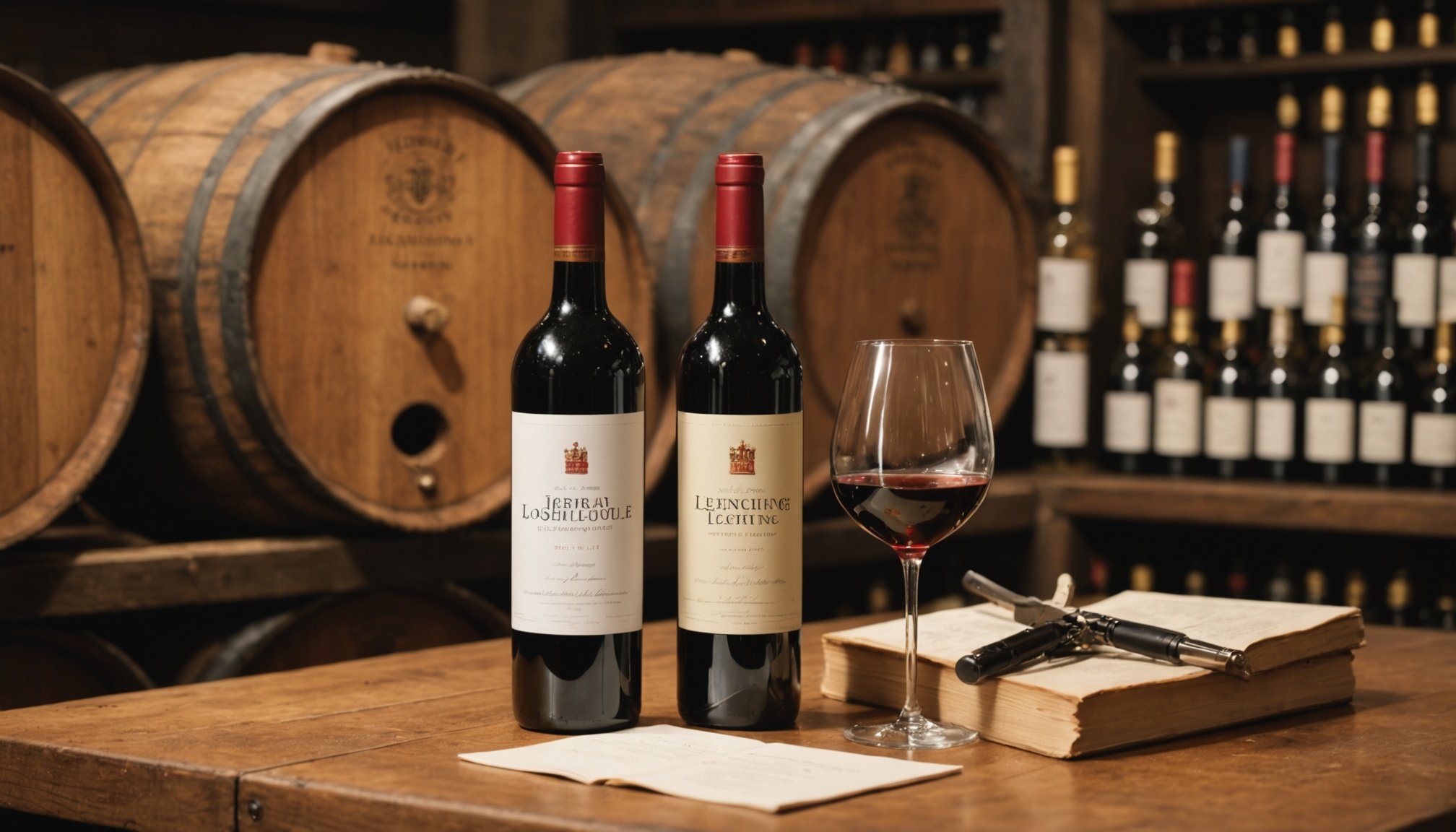Unlocking UK Liquor Licensing: The Essential Guide for Your Virtual Wine Tasting Enterprise
Starting a virtual wine tasting business in the UK can be an exciting venture, but it comes with its own set of challenges, particularly when it comes to liquor licensing and compliance. In this guide, we will navigate the complex world of UK liquor laws, provide practical advice, and highlight key considerations to ensure your business thrives while adhering to all necessary regulations.
Understanding UK Liquor Licensing
Before diving into the specifics of virtual wine tastings, it’s crucial to understand the broader landscape of liquor licensing in the UK.
In parallel : Your ultimate blueprint for launching a marine conservation consultancy in the uk
Types of Licenses
In the UK, businesses involved in the sale or supply of alcohol must obtain the appropriate licenses. Here are some key types of licenses you might need:
- Premises Licence: This license allows a business to sell or supply alcohol from a specific premises. For example, Robin Hood’s Bay Vineyard was granted a premises licence to conduct wine tastings and sell wine to visitors[3].
- Personal Licence: This is required for individuals who will be responsible for the sale or supply of alcohol.
- Temporary Event Notice (TEN): For one-off events or temporary activities involving alcohol sales.
Regulatory Bodies
The licensing process is overseen by local authorities and regulated by national laws. The Wine and Spirit Trade Association (WSTA) is a key body that represents the industry and provides guidance on compliance and regulatory issues[4].
Also to discover : Unlocking success: the ultimate blueprint for starting your renewable energy storage venture in the uk
Navigating Digital Marketing and Ecommerce
In the digital age, marketing and ecommerce play critical roles in the success of any wine business. However, these areas are heavily regulated to ensure compliance with alcohol laws.
Influencer Marketing and Compliance
When engaging in influencer marketing, it’s essential to adhere to strict guidelines to avoid deceptive advertising. Here are some key points to consider:
- Disclosure: Any paid content must be clearly disclosed to the consumer. Terms like “Ad” or “Sponsored” should be used to indicate paid placements[1].
- Licensed Retailers: Only licensed retailers can offer alcoholic beverages for sale. If an influencer is promoting a product, it must be clear who the licensed retailer is and include their DBA and address[1].
Email and SMS Marketing
Email and SMS marketing can be effective tools for engaging with your customers, but they must be used responsibly:
- Opt-In: Ensure that all recipients have opted-in to receive communications from your business.
- Clear Content: Make sure your messages are clear and do not mislead consumers about the products or services you offer.
- Compliance with Data Protection: Adhere to data protection laws such as the GDPR to protect consumer data.
Setting Up Your Virtual Wine Tasting Business
To set up a successful virtual wine tasting business, you need to consider several key aspects.
Business Plan
Developing a comprehensive business plan is crucial. Here are some elements to include:
- Market Analysis: Understand your target market, including demographics and consumer preferences.
- Sales Strategy: Outline how you will sell your services, including online sales and partnerships with licensed retailers.
- Marketing Plan: Detail your marketing strategy, including social media, influencer partnerships, and email marketing.
- Financial Projections: Include projected revenue, expenses, and growth projections.
Licensing and Compliance
Ensure you have all necessary licenses and comply with regulations:
- Premises Licence: If you plan to conduct physical tastings or events, you will need a premises licence.
- Personal Licences: Ensure key staff members have personal licences.
- Temporary Event Notices: If you plan to host one-off events, you may need a TEN.
Ecommerce Platform
Your ecommerce platform is the backbone of your online business. Here are some considerations:
- User Experience: Ensure your website is user-friendly and easy to navigate.
- Cloud Storage: Use reliable cloud storage to manage your data and ensure seamless operations.
- Payment Processing: Set up secure payment processing to handle transactions efficiently.
- Compliance: Make sure your ecommerce platform complies with all relevant laws and regulations, including those related to alcohol sales.
Managing Tax and Duty
Tax and duty on wine and spirits can significantly impact your business.
Recent Changes
The British government has announced an increase in tax on wine and spirits in line with inflation from February 2025. This means a 2.7% increase based on the Retail Price Index (RPI)[5].
Impact on Your Business
- Price Increases: Duty increases can lead to higher prices for consumers, which may result in reduced sales.
- Financial Planning: Factor these increases into your financial projections to ensure you can maintain profitability.
- Consumer Communication: Keep your customers informed about any price changes and explain the reasons behind them.
Building Brand Awareness
In a competitive market, building strong brand awareness is essential for long-term growth.
Digital Marketing Strategies
- Social Media: Use social media platforms to engage with your customers, share content, and promote your services.
- Example: Share behind-the-scenes content of your wine tastings, interact with customers through comments and direct messages, and run targeted ads to increase brand visibility.
- Content Marketing: Create valuable content such as blog posts, videos, and guides to educate your customers about wine and your services.
- Example: Host webinars or online workshops on wine tasting and pairings, and offer exclusive content to subscribers.
- Influencer Partnerships: Collaborate with influencers who align with your brand values and target audience.
- Example: Partner with a wine influencer to promote your virtual wine tastings and reach a broader audience.
Customer Engagement
Engaging with your customers is crucial for building loyalty and driving sales.
- Email Newsletters: Send regular newsletters with updates, promotions, and educational content.
- Example: Offer exclusive discounts to subscribers or provide tips on wine and food pairings.
- Customer Feedback: Encourage feedback and use it to improve your services.
- Example: Conduct surveys or gather feedback through social media to understand customer preferences and make necessary adjustments.
Practical Insights and Actionable Advice
Here are some practical tips to help you navigate the complexities of running a virtual wine tasting business in the UK:
Compliance Checklist
- Ensure all necessary licenses are obtained.
- Disclose paid content clearly.
- Comply with data protection laws.
- Keep customers informed about price changes.
Marketing Tips
- Use social media effectively to engage with customers.
- Create valuable content to educate and attract customers.
- Partner with influencers who align with your brand.
Financial Planning
- Factor in tax and duty increases.
- Monitor financial projections closely.
- Adjust pricing strategies as needed.
Starting a virtual wine tasting business in the UK requires a deep understanding of liquor licensing, digital marketing, and compliance. By following the guidelines outlined in this article, you can ensure your business is both successful and compliant with all relevant regulations.
Key Takeaways
- Obtain necessary licenses and comply with regulations.
- Use digital marketing effectively to build brand awareness.
- Manage tax and duty changes to maintain profitability.
- Engage with customers to build loyalty and drive sales.
Detailed Bullet Point List: Compliance Considerations
- Licensing:
- Obtain a premises licence if conducting physical tastings or events.
- Ensure key staff members have personal licences.
- Use Temporary Event Notices for one-off events.
- Influencer Marketing:
- Disclose paid content clearly using terms like “Ad” or “Sponsored”.
- Ensure influencers promote products through licensed retailers.
- Email and SMS Marketing:
- Obtain opt-in consent from recipients.
- Ensure messages are clear and do not mislead consumers.
- Comply with data protection laws.
- Ecommerce Platform:
- Ensure user-friendly navigation and secure payment processing.
- Use reliable cloud storage for data management.
- Comply with all relevant laws and regulations.
- Tax and Duty:
- Factor in tax and duty increases into financial projections.
- Communicate price changes clearly to customers.
- Customer Engagement:
- Send regular newsletters with updates and promotions.
- Encourage feedback and use it to improve services.
Comprehensive Table: Comparison of Key Licenses
| Type of License | Description | Requirements | Use Case |
|---|---|---|---|
| Premises Licence | Allows alcohol sales from a specific premises | Application to local authority, payment of fee | Physical wine tastings or events |
| Personal Licence | Required for individuals responsible for alcohol sales | Application to local authority, payment of fee, background check | Key staff members involved in sales |
| Temporary Event Notice (TEN) | For one-off events involving alcohol sales | Application to local authority, payment of fee | One-off wine tasting events |
Quotes from Industry Experts
- “Recent history has shown us that duty increases lead to price rises for consumers, a dip in sales and, as a result, fewer receipts for the Treasury…” – Miles Beale, Chief Executive at the Wine and Spirit Trade Association[5].
- “The digital marketplace allows brands to get closer to that high intent customer than ever before.” – AccelPay[1].
By following this guide, you can navigate the complex world of UK liquor licensing and build a successful virtual wine tasting business that engages your customers and complies with all necessary regulations.










